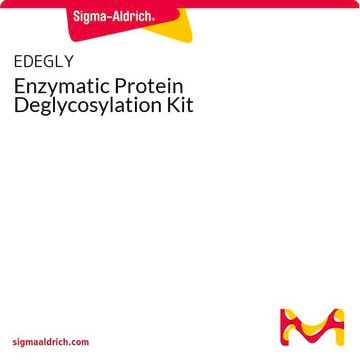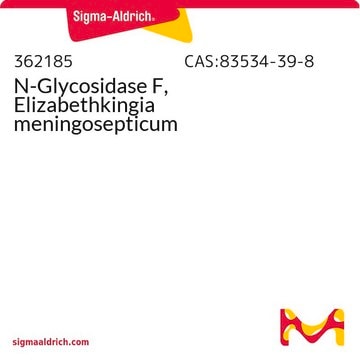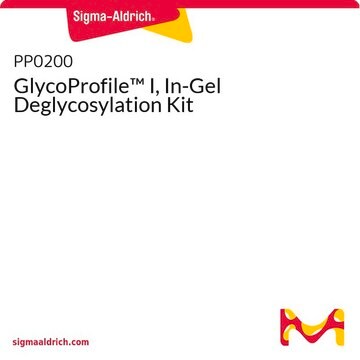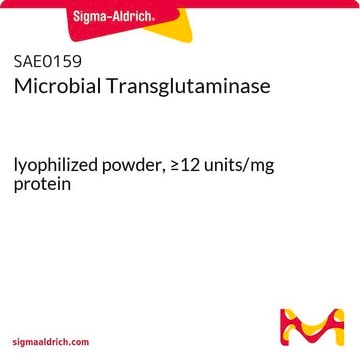EMS0001
PNGase Fast
recombinant, expressed in E. coli
Sinônimo(s):
N-Glycosidase F, PNGase F, Peptide N-glycosidase
About This Item
Produtos recomendados
recombinante
expressed in E. coli
Nível de qualidade
conjugado
(N-linked)
grau
Proteomics Grade
Formulário
ready-to-use solution
Condições de expedição
wet ice
temperatura de armazenamento
2-8°C
Categorias relacionadas
Descrição geral
Aplicação
Ações bioquímicas/fisiológicas
Código de classe de armazenamento
10 - Combustible liquids
Escolha uma das versões mais recentes:
Certificados de análise (COA)
Não está vendo a versão correta?
Se precisar de uma versão específica, você pode procurar um certificado específico pelo número do lote ou da remessa.
Já possui este produto?
Encontre a documentação dos produtos que você adquiriu recentemente na biblioteca de documentos.
Os clientes também visualizaram
Artigos
Fast assessment of antibody-dependent cell-mediated cytotoxicity (ADCC) and glycoform pattern of a therapeutic antibody rituximab by FcγRIIIa affinity chromatography.
Find deglycosylation kits for your research. Review the different features of deglycosylation kits for glycoproteins, enzymatic proteins, and native proteins.
This application note describes the released N-Glycan analysis of a monoclonal antibody, cetuximab, labeled with procainamide, using a BIOshell™ Glycan HPLC column.
PNGase Fast denaturing buffer and enzyme provide results similar to a conventional 20-hour protocol, reducing workflow time to about 1 hour.
Conteúdo relacionado
Find protein research tools to prepare, isolate, and analyze proteins. Organized by how to extract, protect, purify, enrich, modify, and quantify proteins.
Active Filters
Nossa equipe de cientistas tem experiência em todas as áreas de pesquisa, incluindo Life Sciences, ciência de materiais, síntese química, cromatografia, química analítica e muitas outras.
Entre em contato com a assistência técnica



